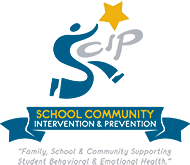Drugs, Chips, and Games-the new afternoon snack
Video Conference: Life Long Learning Center, Norfolk, NE
This course will discuss the differences and similarities between substance use disorders, gambling use disorders, and gaming use disorder. Additionally, this course will outline how the disorders are treated when they present for treatment or if they present in a combination thereof.
Objectives:
Upon completion of this training the participant will be able to: Identify the signs and symptoms of substance use disorders, gambling use disorders, and gaming use disorders. The participants will also know different treatment modalities for all 3 different disorders and comorbidity.
Janet L. Johnson, MA, LIMHP, CDGC, LADC, LPC, has been a therapist at Choices Treatment Center, Inc. for 15 years. In 2005, Johnson obtained her Master’s of Counseling degree focusing on mental health, addictions, and gambling disorders. Johnson currently supervises several interns to expand their knowledge to better assist the overlapping symptomologies of gaming/gambling use disorders.
Jeremy Eberle, MA, LIMHP, CDGC, PLADC, has been providing mental health services, with an emphasis on substance use disorders and gaming disorders, since 2010. In 2017, Eberle was the lead researcher in a study connecting prevalence among Nebraska college students and daily fantasy sports. In 2019, Eberle opened is own private practice, Eberle Therapy Services. His current area of interest is the intersection between Gambling Use Disorder and Gaming Use Disorder, as these two disorders appear to share a great deal of similarity and comorbidity.
Continuing Education Credit
6 hours approved for clinicians on the Supreme Court of Nebraska, Office of Probation Administration's Registered Service Providers List.
6 LADC CEUs— 20.127
4.5 Gambling Specific hours and 1.5 Related Subject hours approved by the Nebraska Commission on Problem Gambling
This program may also meet the criteria of an approved continuing education program for certified social workers, certified master social workers, or licensed mental health practitioners for 6 contact hours. Other healthcare professionals may use their certificate of attendance to claim continuing education hours through their certifying body.
Participants must attend the entire workshop in order to receive credit.
